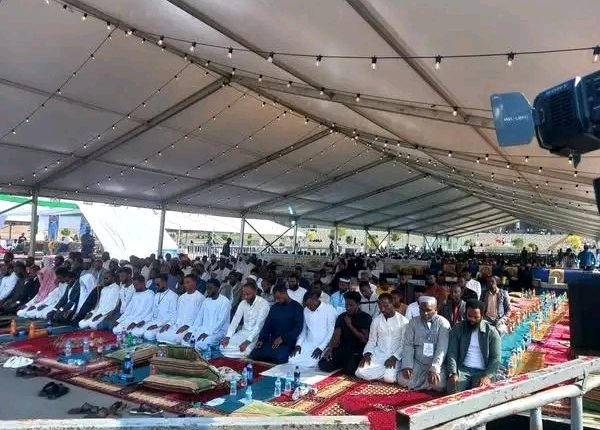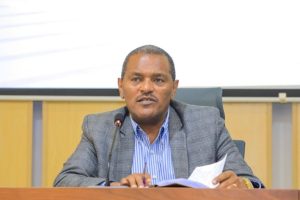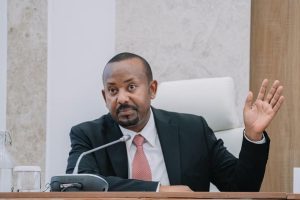
In a world that is divided by political, religious or economic reasons, in Ethiopia the spirit of solidarity and standing by the side of others is still intact. This deep rooted culture of solidarity and love is still strong in Ethiopia. Such intrinsic values are still manifesting themselves in various forms such as sharing meals, clothing or resources with the needy people is part of this solidarity. As Ethiopia continues to host refugees from different parts of the world, the culture of sharing has not only become a cultural hallmark but also an essential feature that truly defines Ethiopia and its people.
Providing shelter to refugees is not something new to Ethiopia. Rather, it is an age-old culture that has been practiced at the government officials or individual levels. Those people who fled their motherland for political or economic reasons are always welcomed in Ethiopia. As witnessed from the case of refugees from Yemen and Syria, Ethiopians have been and still are welcoming towards them.
In fact, sharing meals or clothing with refugees goes beyond fulfilling daily needs. It also has a key role in fostering a sense of togetherness, compassion and social belonging helping them to fill at home. These are what Ethiopia and its people are trying to nurture – a sense of solidarity and togetherness.
We are now found at the month of Ramadan where the Muslim communities enjoy their fasting season with brothers and sisters. Indeed, the holy month of Ramadan is not just about abstaining from food and drink from dawn until dusk; it embodies the principle of solidarity and sharing that are vital to fostering a sense of community. As several documents indicate, Ramadan serves as a poignant reminder of the importance of empathy and compassion, particularly to the less fortunate ones.
Here in Ethiopia, the practice of empathy in the holy month of Ramadan is being practiced at every corner of the country both at individual and government levels. Despite the fact that refugees are living far away from their motherland, they are enjoying the fasting and prayer with their Ethiopian Muslim communities and experience the essence of compassion with their Christian brothers and sisters. As part of this commendable demonstration of solidarity and compassion, the Prime Minister’s Office has been proactively engaged in sharing meals with the Muslim community in Addis Ababa during the holy month of Ramadan over the past several years.
Recently, considering the importance of sharing meal with refugees, Prime Minister Abiy Ahmed (PhD) had hosted an Iftar meal program to 200 refugees from various countries at the National Palace, which symbolizes the spirit of solidarity, love and shared humanity during the month of Ramadan.
The initiative also reflects not only a commitment to the principles of generosity that Ramadan embodies but also a broader effort to foster unity and peace among people. By organizing communal Iftar programs, where families gather to break their fast together, the government is taking essential steps to strengthen community bonds and underscore the importance of empathy and collective support.
What is more, these communal feeding efforts not only cater to the immediate needs of those who may be struggling to afford meals during the fasting month but also serve as a vital expression of goodwill and inclusivity. The gatherings of individuals from diverse backgrounds underscored the importance of inclusivity, unity and collective responsibility in addressing global humanitarian crises.
It is learned that the event is a good reminder of Ethiopia’s enduring commitment, to supporting displaced communities, offering them hope and dignity amidst the challenges they face. As indicated by the Office of the Prime Minister, the group who participated in the Iftar dinner program also had the opportunity to visit the newly renovated National Palace.
In related development, the annual grand street Iftar program was held colorfully in Addis Ababa on Sunday in the presence of the faithful. On the event, thousands of Muslims were gathered for a grand street Iftar, a communal meal to break their fast together.
Speaking at the event, Ethiopian Islamic Affairs Supreme Council President, Sheik Ibrahim Tufa, emphasized that the holy month of Ramadan presents a valuable opportunity to enhance cooperation and foster national unity.
He also said that this event represents a powerful emblem of solidarity, harmony, and tranquility within the Muslim community, showcasing the strength that comes from unity across the nation.
Meanwhile, the Ramadan Iftar program was also held in Dire Dawa City, a symbol of unity, solidarity and love.
Speaking at the program, Mayor of Dire Dawa City Administration Kedir Juhar, stated that Dire Dawa is a city where complete peace has been ensured and its residents live together with greater love and respect.
Adding that the ongoing development projects, including the corridor development projects that have already started in the city should be further strengthened Mayor Kedir expressed his gratitude to those who contributed their share to the success of the Iftar program.
The Iftar program was attended by Aba gaddas, ugazs, followers of the Islamic faith, and invited guests, including senior leaders of the City Administration.
Similarly, on the same day, prior to the Iftar time, the City Administration hosted a lunch for followers of the Christian faith in observance of the Great Lent (Abiy Tsom), a fasting season observed by members of the Ethiopian Orthodox Church.
The luncheon program took place at the residence of the Mayor Kadir Juhar with the aim of further strengthening unity and togetherness within the Dire Dawa community. The program was attended by religious leaders, and senior leaders of the Administration.
Indeed, as indicated by Sheik Ibrahim the holy month of Ramadan has a pivotal role to strengthen cooperation and promote national unity. This sacred period offers a unique experience to individuals and communities to come together, transcending differences and fostering a spirit of collaboration which is essential to Ethiopia.
Moreover, the fasting season serves not only as a time for reflection and spiritual growth but also a powerful emblem of solidarity, harmony and tranquility within the community. As one can witness from the recent meal sharing program organized by Office of the Prime Minister to Muslim refugees in Ethiopia, the collective practices of fasting, praying, and charitable giving have created an atmosphere of mutual support and understanding that extends beyond religion.
In a world often characterized by division and discord, the message of Ramadan advocates for peaceful coexistence and mutual respect among diverse groups. As we embrace the teachings of this holy month, it becomes imperative to recognize the importance of collaboration and inclusivity in our efforts to build a harmonious society. By fostering the culture of empathy, we can cultivate a spirit of togetherness that nurtures the bonds of friendship and respect among all Ethiopians, transcending religious and cultural divides.
BY LEULSEGED WORKU
THE ETHIOPIAN HERALD TUESDAY 18 MARCH 2025




